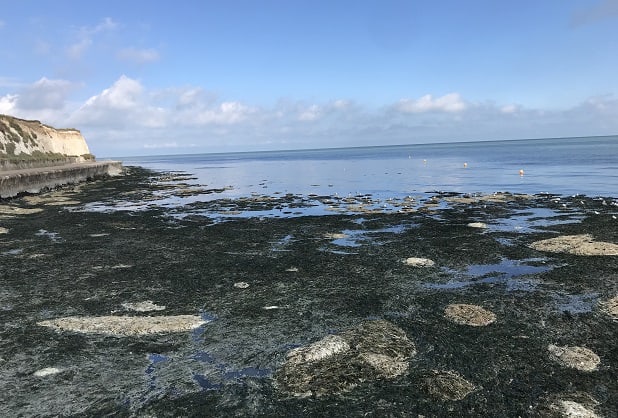
Stinking seaweed which is also causing release of hydrogen sulphide gas from bays in Westgate and Birchington will most likely be left for the Spring Tide to wash away, councillors have been told.
A virtual briefing yesterday revealed removal of the seaweed, which has built to extremely high levels this year, is looking unlikely.
Residents have complained of an ‘overpowering stench’ and say the gas being emitted is even causing corrosion at nearby properties and turning wood black.
Hydrogen sulphide, which is a colourless gas, occurs naturally in some environments such as the decomposition of organic material. Although the body can rapidly metabolise the gas it can result in symptoms such as headache, fatigue and nausea.
Birchington Councillor George Kup says this year’s levels of seaweed blanketing Minnis Bay and surrounding bays is the worst he has seen in 23 years.
However, Birchington councillor Phil Fellows said councillors have now been told there are issues with Beresford, Epple and Grenham bays making it unadvisable to take machinery and vehicles on to the chalk reef.
In a post to residents he said: “It is a protected SSSI and anyone causing damage to the reef would be liable to substantial fines. Removing it from the prom has also been looked at and is also impractical.
“If it could be removed then there is also an issue of costs to dump the seaweed. If no farmers want it, then it has to go to landfill and 500 tonnes would cost £100,000 to dispose of.
“The council has sought expert health advice and it appears the gasses given off would be low level and should not cause any health issues in open air.
“Kent Fire and Rescue Service is going monitor the levels over the next few days to see what they are. Very high tides are predicted shortly and hopefully this can disperse the seaweed.”

